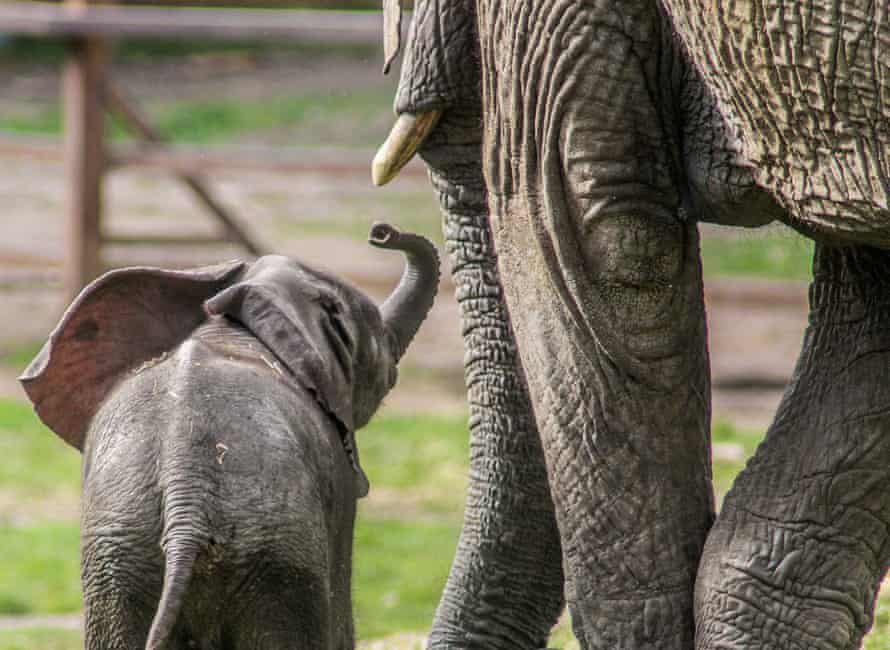Mammoth journey ahead as elephants leave Kent zoo for the Kenyan savannah
All but one of the herd of 13 were born in captivity, but conservationists hope they can be ‘rewilded’

Last modified on Mon 5 Jul 2021 17.35 EDT
A herd of elephants born and raised in a Kent zoo are about to get on a plane to travel almost 4,500 miles (7,000km) to Kenya, in order to reintroduce them to the wild in a first-of-its kind operation.
The herd of 13, which includes three calves, were all but one born at Howletts Wild Animal Park, a private zoo near Canterbury. The mammoth mission to “rewild” the elephants is being carried out by the Aspinall Foundation, the Kenya Wildlife Service and Sheldrick Wildlife Trust.
Although travel arrangements for the elephants are yet to be confirmed, the animals will probably travel fully conscious in transportation crates in a large aircraft, with help from South African specialists in elephant transportation. The elephants will spend time in the crates ahead of the journey, in order to get used to the spaces and reduce stress during the flight. They will be continuously monitored by a team of vets.

When they get to Kenya, the savannah elephants, the endangered but most common African elephant species, will be held in an enclosure for six months so conservationists can monitor their reaction to the different climate and diseases.
The Aspinall Foundation, the British wildlife charity that operates the Kent zoo, has experience facilitating the successful reintroductions of gorillas, rhinos and other species from captivity.
Damian Aspinall, the chairman of the Aspinall Foundation, said: “This is an incredibly exciting project and a genuine world first. As with any conservation project of this magnitude, there are obviously big risks, but we consider them well worth it to get these magnificent elephants back into the wild where they belong.
“By supporting the project, members of the public will be part of conservation history, helping to restore an iconic species to its ancestral homeland.
“If this is successful, I would love to see elephants held in captivity all over the world be rewilded too.”

The new sites for the elephants have not yet been chosen but it is understood areas that could support many more of the large mammals will be selected.
Angela Sheldrick, CEO of the Sheldrick Trust, said: “Since the 1970s we have been helping elephants. Providing a wild future to more than 260 rescued orphans and operating extensive protection projects to ensure they, their wild-born babies and their wild kin are best protected throughout their lives. We look forward to offering that same opportunity to these 13 elephants when they step foot on African soil, home where they belong and able to live wild and free as nature intended.”
Earlier this year,the International Union for the Conservation of Nature (IUCN), which compiles a regularly updated “red list” of at-risk plants and animals, produced the first-ever assessment of African elephants as two species, finding the forest elephant and savannah elephant are both threatened with extinction.
